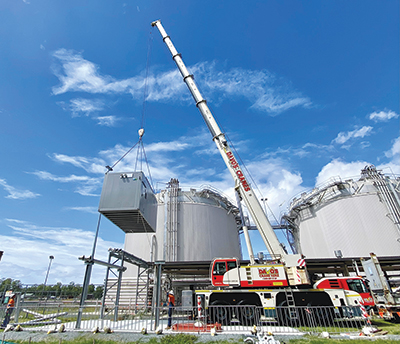City of Gold Coast, Queensland, is expanding opportunities to produce cost-saving energy and commercial soil products from its bioresources.
Bioresources include food organics, green organics, biosolids from sewage treatment plants and biogas from the City’s two active landfill sites.
Raw materials such as food organics and green organics are reprocessed into mulch and compost used to enrich the city’s parks and gardens.
The City now works with biogas-to-energy producer, LMS Energy, to recover gas from landfill sites, producing enough electricity to power nearly 5000 Gold Coast homes for a year.
Using electricity generated by landfill gas prevents the gases from escaping into the atmosphere and reduces the need to burn coal or other fossil fuels that produce more greenhouse gases.
Methane produced at the City’s Elanora sewage treatment plant has been used to supplement power used at the plant for more than a decade.
The cogeneration power plant (Cogen) at Elanora is estimated to produce 20 percent of the plant’s daily power use.
A larger Cogen, using the latest technology has now been installed at Coombabah sewage treatment plant, with a long-term view to transporting biosolids from the plants at Merrimac and Pimpama to increase gas production.
The City continues to investigate ways to increase biogas production by exploring the different types of wastes that could be fed into the anaerobic digesters that produce the methane.
Investigations have also been made towards exploring potential new markets for the City’s bioresource products.

















